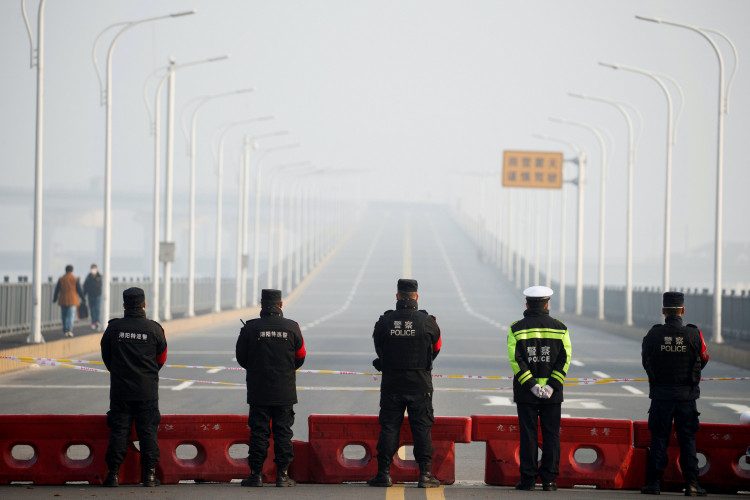A World Health Organization delegation of scientists started an investigation into the origins of COVID-19 Friday as Hebei province battled a second resurgence of the virus.
The group of scientists from 13 countries were at first blocked from entering China but Thursday night touched down in Wuhan where it will investigate the disease that caused an international pandemic.
"The experts will begin their work immediately during the two-week quarantine protocol for international travelers," the organization said Thursday.
The team began its trip to China more than a week ago but was told the same day that China officials hadn't given final permission for the team to arrive and begin its work.
"We've been told by the China authorities we'll have access to what we need to do. So I can only therefore hope we will," Australian professor Dominic Dwyer told the Sydney Morning Herald from his hotel room in Wuhan late Thursday.
The organization's visit coincides with a COVID second wave in Hebei province - which reached nearly 500 known active infections Thursday prompting construction on a medical isolation center.
To contain the virus, more than 28 million people are being asked to stay home in Heilongjiang and Hebei provinces while provincial capital Shijiazhuang, home to 11 million people, has been under lockdown since Wednesday a week ago.
Thousands of residents from three high-risk areas around the province have been quarantined.
Across China there has been an uptick in new infections. On Thursday, 138 new cases were recorded - 14 of them imported - bringing the nation's official number to nearly 88,000 infections and more than 4,600 deaths since December.
"China will strictly abide by relevant epidemic prevention regulations and requirements, and provide corresponding support and convenience to the organization experts," China's Foreign Ministry representative Zhao Lijian said.
Almost 2 million people have died from COVID-19 to date with more than 50 million active infections around the world, according to Johns Hopkins University.
"It's extremely important that we understand the origin of the virus - not only for scientific purposes, but also to reduce the risk of any future outbreaks," said World Health Organization representative Tarik Jasarevic.





